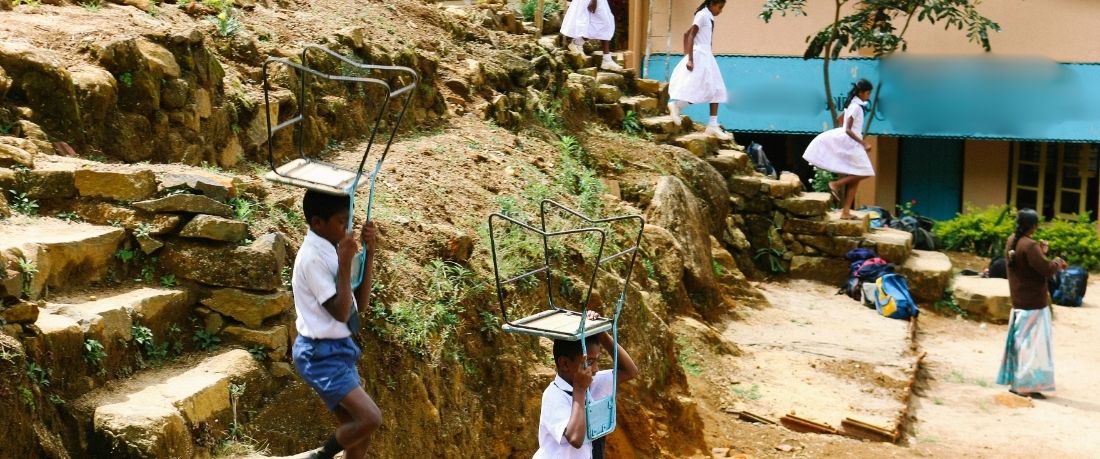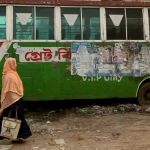In a significant victory for child protection advocacy in Sri Lanka, iProbono supported a petition to the influential Right to Information (RTI) Commission, requesting that the National Child Protection Authority (NCPA) grant access to records and reports on child abuse convictions to Dr Tushara Wikramanayaka, Founder – Stop Child Cruelty Trust. Dr. Wickramanayaka was represented by our panel lawyer, whose petition succeeded in holding the NCPA accountable for their legal obligations. As the central body advising the government on child protection, the NCPA plays a pivotal role in the well being of Sri Lanka’s 5.2 million children.
This win is an important step in ensuring that the NCPA fulfils its obligations under the National Child Protection Authority Act No. 50 of 1998. These include receiving complaints relating to incidents of child abuse, forwarding these complaints to the relevant police authorities, and assisting in related investigations.
Stop Child Cruelty Trust had approached the NCPA in May 2023 with a request to access these details of child abuse convictions from 2010 to 2021. Dr Wickramanayaka, had also asked for access to the body’s annual reports from 2020 to 2022. She additionally asked for the NCPA website to be accessible in three languages, i.e., Sinhala and Tamil, besides the already existing English.
Dr Wickramayaka’s requests were prompted by her need to understand the severe delays that often mark child abuse cases. “Sri Lanka has an exhausting and lethargic legal system. On average, a child abuse case lasts for ten years, with a disappointing rate of less than 5% convictions per year”, she explains. She wanted to use the data to develop better strategies for the monitoring and evaluation of child abuse cases.
The NCPA responded to her request in June 2023 by claiming that records of child abuse convictions were “not in the custody, possession, or control of their institution”. It also stated that their annual reports were not required to be made accessible to the public as they were not passed in parliament, and hence were not in the public domain. On the request for trilingual accessibility for the website, the NCPA stated that the process for this was underway.
This response was a cause for concern. iProbono then supported Dr Wickramanayaka in approaching the RTI Commission through our panel lawyer, Attorney-at-Law Erandhi Abeynayake. We initiated legal action in December 2023, under Section 3 of the Right to Information Act No. 12 of 2016. This law guarantees every citizen the right to access information held by government bodies without delay.
The petition highlighted that the NCPA, as mandated by Section 14 of the NCPA Act, is responsible for monitoring the progress of all child abuse investigations and criminal proceedings. The petition was successful and the RTI Commission observed that keeping accurate statistics on the progress of investigations and proceedings related to child abuse in Sri Lanka is part of the supervisory responsibility assigned to the NCPA. It also ordered the NCPA to prepare a plan to display information about the progress of legal proceedings, which should then be submitted to the Commission within three months. This will allow for greater public oversight and understanding of the system.
Moreover, in the absence of compliance, the Commission made an undertaking to initiate criminal proceedings against the NCPA in the Magistrates Court as per Section 39 of the Right to Information Act.
The Commission also ordered that the annual reports of the NCPA be released to the public, noting that the NCPA Act does not specify the requirement for parliamentary recording. The body was also ordered to make their website publicly accessible in all three languages as soon as possible.
Following this order, Dr. Wickramanayaka received all requested annual reports from the NCPA, and the NCPA website is now accessible tri-lingually.
The information that is now accessible in the public domain can be used by various stakeholders to assess the effectiveness of the current system with evidence-based information. By pursuing the NCPA to grant access to these crucial records, iProbono has delivered on its commitment to working for the rights and well-being of children.







